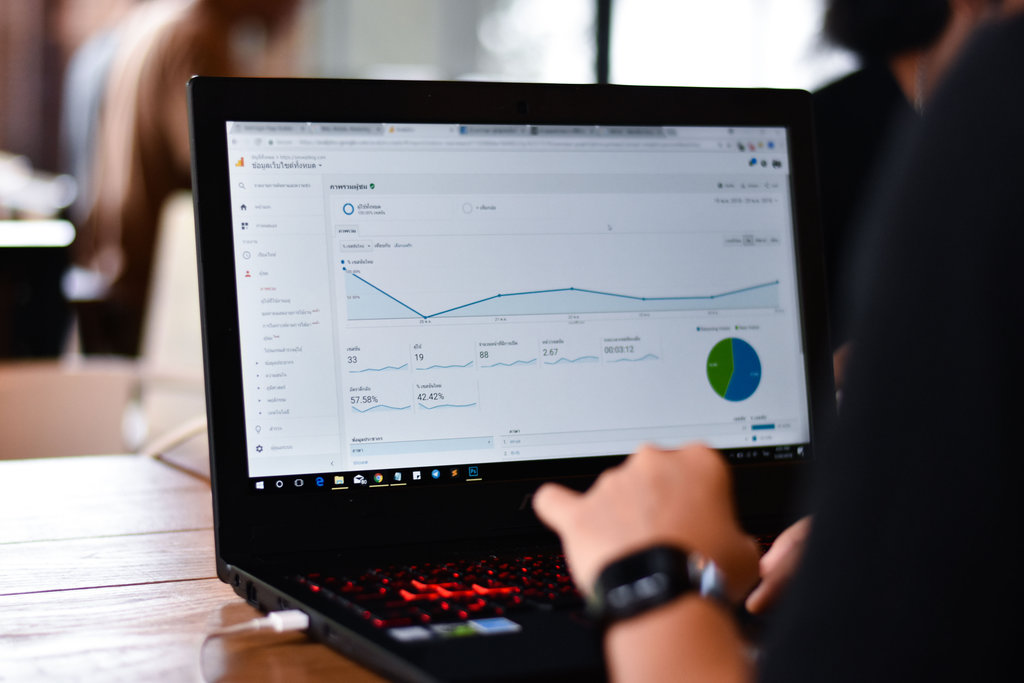Does your law firm want to be found online, drive traffic to your website and attract potential clients? We assume you’re nodding your head yes, so continue reading to learn about some of the most important search engine optimization (SEO) tactics that can help you achieve this online visibility. Keep in mind that these SEO strategies are essential now but are constantly evolving due to changes in search engine algorithms, shifts in user behavior and technological advancements.
Google E-E-A-T
Google’s original E-A-T concept stood for Expertise, Authoritativeness and Trustworthiness, and was used to evaluate the quality and credibility of online content. It is a key component of their Search Quality Rater Guidelines which provides a framework to assess the quality and relevance of search results for users and helps inform Google’s algorithm updates.
In the past few of years, Google expanded its evaluation to E-E-A-T to include “Experience.” Here is a breakdown of each component:
- Experience: Adding this element underscores the content creator’s firsthand experience, which is crucial to their expertise and credibility on various topics. This is a key differentiator between human and AI written content.
- Expertise: This evaluates the creator’s knowledge on the subject matter. Content should be written by someone with a high level of expertise on the topic.
- Authoritativeness: This assessment looks at the overall credibility of the content creator, their website and business. Are they a leading source of information on the respective topic?
- Trustworthiness: This ensures the content is accurate, reliable and is considered to be the most important of the four evaluations.
Demonstrating EEAT
The good news is you’re likely already doing many of the things Google wants to see on your website – showcasing professionals’ credentials, highlighting awards and rankings, providing clear contact information, publishing informational content, etc. But as EEAT is a constantly moving target, you always want to look for ways to update and enhance your content. Here are a few steps to optimize your site:
- Assign an author. Include an author for every article, blog and news post with a link to their bio page. This demonstrates that someone with authoritative experience wrote the content and weighs more favorably with Google rather than it being published by your firm.
- Keep your content current. Sites that have been recently updated are deemed more credible. Don’t redo your website and then not touch it for five years. Broken links can also hurt your site’s credibility, so regularly review your content to ensure everything is up to date.
- Add a Community page. Talking about your firm and lawyers’ involvement in the community through volunteering and other outreach initiatives shows Google you’re human and builds trust. The page can also add to your local relevance and authority by discussing specific organizations in a geographic area.
- Incorporate Google reviews. Publishing testimonials and case studies on your website is a good practice, but Google assumes this will be favorable content because you spoke with the client and created the content internally. Whereas Google reviews include feedback directly from the client and offer greater trustworthiness. Numerous positive reviews give your firm’s website a higher SEO ranking and are vital to achieve online success. It’s also important to note that you want consistency – don’t get 50 reviews in one month and then none the rest of the year; spread them out (e.g., four per month) so you have a continuous stream of reviews. For an added SEO boost, you can also consider adding a widget which will allow you to display reviews from Google directly on your website.
- Have a secure website. Ensure your site has the latest technology and security measures to protect user data and to show Google that you are trustworthy. This can be a complex area, so you need to have someone well-versed in web security to stay on top of it.
These are just a few tactics to enhance your Google EEAT. For additional guidance on building web credibility, the Stanford Persuasive Technology Lab compiled ten guidelines that can help you demonstrate experience, expertise, authoritativeness and trustworthiness.
Content is Still King
Having a robust website with informational content continues to be critical for SEO, but how that content is created makes all the difference. Google penalizes websites for having too much AI written content and through a variety of systems, can identify if your blogs and other pages were generated using AI.
AI content isn’t fully banned by Google though, and if it meets EEAT criteria, could contribute to valuable content and increase SEO rankings. However, that’s the paradox of AI – the more we use it, the more human “touch” it requires. AI can be a starting point, but the content created still needs to be unique and high-quality; characteristics that AI often misses the mark on.
At a recent Agency Management Institute conference we attended, one session conducted a test on content created by humans, AI and a hybrid of both. The results showed that the AI content drove no traffic to the respective website. This was an excellent reminder to be careful about your content. Yes, you need “more,” but it’s not doing you any good if you’re publishing pages and pages of AI generated content that hasn’t been revised to include authentic, credible insights.
Remember that clients are buying your expertise, and content marketing is one way to stand out and demonstrate that you really know their industry. This isn’t the time to cut corners. Yes, creating unique content takes effort but it fuels all of your marketing channels and is a prime strategy to attract and engage your audience.
Link Building
Obtaining high-quality backlinks from other websites boosts the authority and credibility of your site among search engines. Law firms used to rest their laurels on link building via university scholarship pages on .edu sites, and while it worked well ten years ago, the practice has lost most of its SEO value due to oversaturation. Firms should instead focus their efforts on directories and citations that include the firm’s name, address, phone and URL. It’s also advantageous to be listed on industry business pages, including organizations the firm and lawyers are members of as well as social media pages like LinkedIn and Facebook.
Public relations, including media coverage and bylined articles, that generate backlinks to your website is another highly effective SEO strategy. The main objective is to get a backlink from Los Angeles Times, Wall Street Journal or other reputable news sites, but even being mentioned contributes to your authoritativeness. It can also create organic traffic to your site as readers click through to learn more about your firm. This signals to search engines that your site is valuable.
Location Based SEO
Location-based SEO, or geo-targeting, is the practice of optimizing your content to appear in search engines for a particular area. For example, if your law firm has offices in Los Angeles, New York City and Atlanta, and you want to obtain new business there, you’ll want to publish online content that targets those cities. Some tactics to accomplish this include:
Publish location-centric pages. Each city you want to target should have a unique landing page describing your services tailored to that location, like a mini-Home or About Us page for every city. Include details specific to that location, showing you know the area and understand your clients’ needs. The caveat is that you can’t write one template page and then simply replace the city for each additional page. The content must be substantially different, or Google will give you a duplicate content penalty, and your efforts will be all for not. Keep in mind that targeting larger cities will be much more competitive than smaller cities.
If this seems like a big undertaking, you’re right. Start with one or two cities and get your content fully optimized, and then expand from there.
Use local keywords. For example, an intellectual property law firm in Los Angeles may optimize their website using:
- Intellectual property law firm Los Angeles
- Intellectual property lawyer Los Angeles
- Intellectual property attorney Los Angeles
- IP lawyer Los Angeles
- IP attorney Los Angeles
To research the best keywords for your firm, you can refer to online tools such as Semrush’s Keyword Magic Tool.
Now you may be thinking, I’ll just include “Intellectual property lawyer Los Angeles” one thousand times throughout my website and voila, high SEO rankings! Unfortunately, that’s not the case. There are numerous guidelines you should follow when incorporating keywords to your site, and one tactic to avoid is keyword stuffing, essentially forcing keywords into your webpages:
“If you’re looking for a Los Angeles intellectual property lawyer, you’ve come to the right place. Our intellectual property lawyer Los Angeles services are top-notch, and our intellectual property lawyer Los Angeles team has years of experience. Contact our intellectual property lawyer Los Angeles office today for the best intellectual property lawyer Los Angeles representation.”
This example proves it’s very obvious when a website attempts to keyword stuff, and you’re definitely not fooling Google. If you’re not up to speed on keyword best practices, work with an SEO expert who can help.
Create Google Business profiles. Google Business is a free tool that lets you set up profiles for each of your locations to manage your online presence across Google, including search and maps. If you are targeting Los Angeles, New York City and Atlanta, you want to have a profile for each – as long as you have a physical address or make in-person contact with clients. You can learn more about the requirements on Google’s FAQ page.
To optimize each of your profiles:
- Fill out your profile entirely with a firm description, services, hours, etc.
- Include the specific city you’re targeting in the page title, e.g., ABC Law Firm Los Angeles, ABC Law Firm Atlanta.
- Verify your profile ownership via phone, SMS or by requesting a postcard to your office.
- Post regular updates with firm news, etc.
Local Service Ads
Another geographic SEO tactic is Google’s Local Service Ads (LSA). LSAs can be considered the third category of search results following organic and paid (pay-per-click or PPC). When a user is searching for specific local industries (e.g., Personal Injury Lawyer in Beverly Hills), LSAs for select local businesses will appear before organic or paid results. These ads are available on mobile and desktop and promote information such as services offered, phone number, hours, reviews, photos and other essential business details.
A prime difference from PPC is that you only pay when a potential client calls or messages you through your LSA, and not just when they click on it. LSAs also tend to be cheaper than PPC because they don’t follow the same auction format, although there is less control over when they appear due to other advertisers’ ads competing for the same search phrases.
Before you start advertising, know that not every industry is eligible in all areas and Google requires a screening and verification process to approve you. Once you do get set up, understand that you’ll rank higher if you provide comprehensive business information, have a strong budget and respond in a timely manner to leads.
The Ongoing SEO Journey
We’ve covered some of the foundational steps to enhance your online presence but to truly stay ahead, continuous learning and adaptation are imperative. If you commit to understanding new techniques and trends, it will pay off in the form of increased visibility and business leads that result in firm growth.
Partner with a Trusted Marketing and PR Agency
Berbay Marketing & Public Relations has nearly three decades of experience providing law, real estate and financial firms with strategic marketing and public relations services that propel your business forward. Berbay’s dedicated team has demonstrated success securing media placements, achieving nominations and rankings, revitalizing websites and social media, obtaining speaking engagements, and more.
Looking to grow your firm with a proven marketing and PR team? Contact Berbay at 310-405-7343 or info@berbay.com



